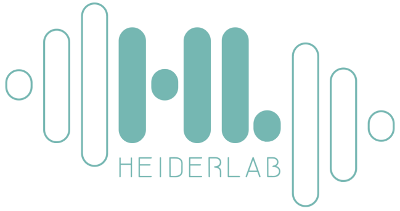CORona Drug InTEractions database
Antiretroviral Drug Activity and Potential for Pre-Exposure Prophylaxis Against COVID-19 and HIV Infection
Dennis C. Copertino Jr., Bruno Lima, Rodrigo Duarte, Timothy Wilkin, Roy Gulick, Miguel de Mulder Rougvie, Douglas Nixon
Abstract
COVID-19 is the disease caused by SARS-CoV-2, and has led to over 250,000 deaths by May 2020. Urgent studies to identify new antiviral drugs, repurpose existing drugs, or identify those drugs that can specifically target the overactive immune response are ongoing around the world. Antiretroviral drugs (ARVs) have been tested in past human coronavirus infections, and also against SARS-CoV-2, but a recent clinical trial of lopinavir and ritonavir failed to show any clinical benefit in COVID-19 disease. However, anecdotal reports suggest either reduced infection or a course of milder COVID-19 disease in people living with HIV (PLWH) on ARVs. We hypothesized ARVs other than lopinavir and ritonavir might be responsible for such effects. Here, we used chemoinformatic analyses to predict which ARVs would bind and potentially inhibit the SARS-CoV-2 main protease or RNA-dependent RNA polymerase enzymes, and identified a number of ARVs which bind to SARS-CoV-2 enzymes in silico. Our study identified HIV nucleoside/nucleotide analogue reverse transcriptase inhibitors (abacavir, emtricitabine, lamivudine, tenofovir, zidovudine), HIV protease inhibitors (ASC09, atazanavir, indinavir, lopinavir, nelfinavir, ritonavir, saquinavir, tipranavir) and an HIV pharmacokinetic booster (cobicistat), as drug candidates with effective in silico binding to one or both viral enzymes. Tenofovir and emtricitabine are FDA-approved as HIV pre-exposure prophylaxis (PrEP) and have an extensive safety profile of use in populations without HIV. Existing or new combinations of antiretroviral drugs could potentially prevent or ameliorate the course of COVID-19, if shown to inhibit SARS-CoV-2 in vitro and/or in clinical trials. Further studies are needed to establish the activity of ARVs for treatment or prevention of SARS-CoV-2 infection.
Source: ChemRxiv
Related molecules
Related interactions
| Target | Target affiliation | Drug | Type | Result |
|---|---|---|---|---|
| Target | Target affiliation | Drug | Type | Result |
| Name | Synonyms | Genes | Origin |
|---|---|---|---|
| Name | Synonyms | Genes | Origin |
| Name | Synonyms | PubChem | DrugBank | RCSB PDB | ATC |
|---|---|---|---|---|---|
| Name | Synonyms | PubChem | DrugBank | RCSB PDB | ATC |
| Title | Authors | DOI | Source | Article type | Date |
|---|---|---|---|---|---|
| Title | Authors | DOI | Source | Article type | Date |
| Title | Status | Phases | Start Date | Prim. Comp. Date | Comp. Date | First Post. Date |
|---|---|---|---|---|---|---|
| Title | Status | Phases | Start Date | Prim. Comp. Date | Comp. Date | First Post. Date |
CORDITE (CORona Drug InTEractions database) collects and aggregates data from PubMed, MedRxiv, BioRxiv, ChemRxiv and PMC for SARS-CoV-2. Its main focus is set on drug interactions either addressing viral proteins or human proteins that could be used to treat COVID. It collects and provides up-to-date information on computational predictions, in vitro, as well as in vivo study data.
The information provided is for research only and we cannot guarantee the correctness of the data.
Please contact dominik.heider@uni-muenster.de for further information.
Programmable access
There is an open API for access programmatically to the database. The API will print a JSON output:
- Interactions
https://cordite-api.uni-muenster.de/api.php?action=list&table=interaction
- Targets
https://cordite-api.uni-muenster.de/api.php?action=list&table=target
- Drugs
https://cordite-api.uni-muenster.de/api.php?action=list&table=drug
- Publications
https://cordite-api.uni-muenster.de/api.php?action=list&table=publication
- Clinical trials
https://cordite-api.uni-muenster.de/api.php?action=list&table=clinical_trial

